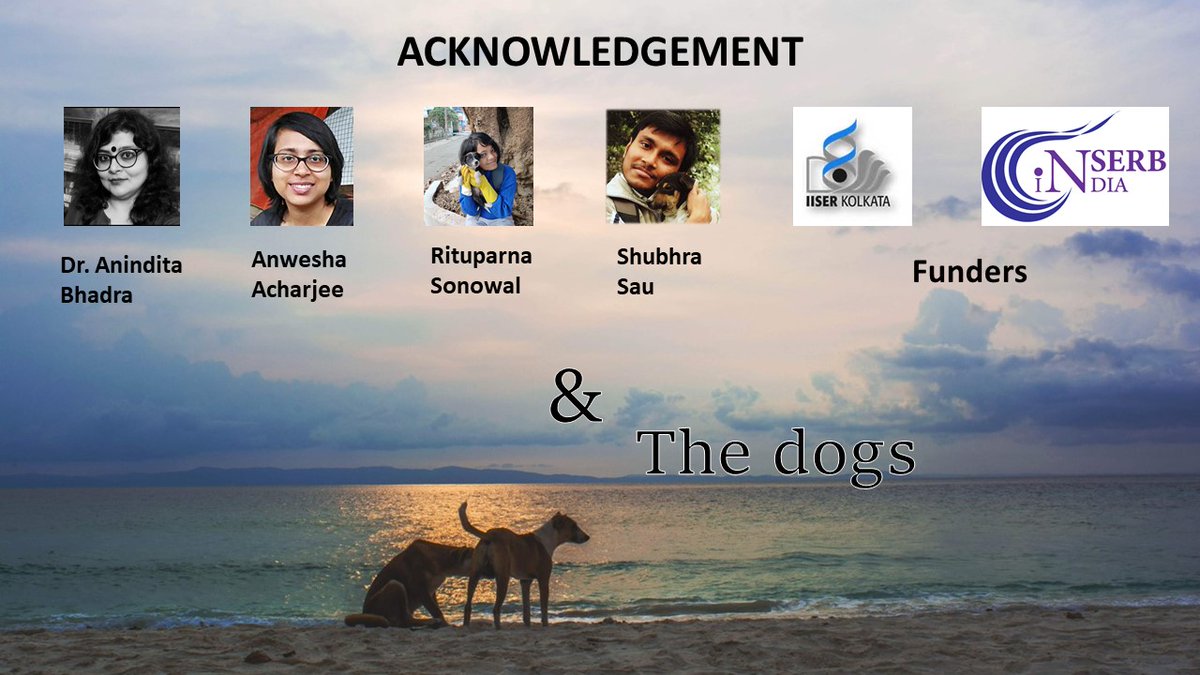The lynchpin of dog domestication theory is food acquisition. Free-ranging dogs (FRD) living on their own & unsupervised by humans are a great system to study food preferences, acquisition strategies in canids & if & how human food choices affect them. 1/6. #AnimBehav2021
Preliminary experiments through a food choice task showed that dogs followed a Rule of Thumb (ROT) theory, "If it smells like meat, eat it." This includes even meat smelling but non meat food. But there were certain limitations. 2/6 #AnimBehav2021
In a series of experiments simulating real world conditions FRD were allowed to forage, choose, and eat from proxy dustbins for a limited period of time. The experiment was first done on individual dogs and then on groups of dogs with the same setup. 3/6 #AnimBehav2021
Individually, FRD retain their meat preference, implementing an updated ROT theory through the Sniff&Snatch strategy in real world conditions. They make quick decisions based on smell alone to sequester their preferred food 1st followed by other available food 4/6 #AnimBehav2021
In groups, intra-group competition comes into play. Lower the position of the dog in responder order, less likely are their chances to eat their preferred food. ROT theory then becomes a privilege dictated by responder order. 5/6 #AnimBehav2021
Scavengers can be Choosers: A study on food preference in free-ranging dogs https://doi.org/10.1016/j.applanim.2019.04.012 provide more details.
It's been a pleasure to participate in this #AnimBehav2021 conference. 6/6
It's been a pleasure to participate in this #AnimBehav2021 conference. 6/6

 Read on Twitter
Read on Twitter


